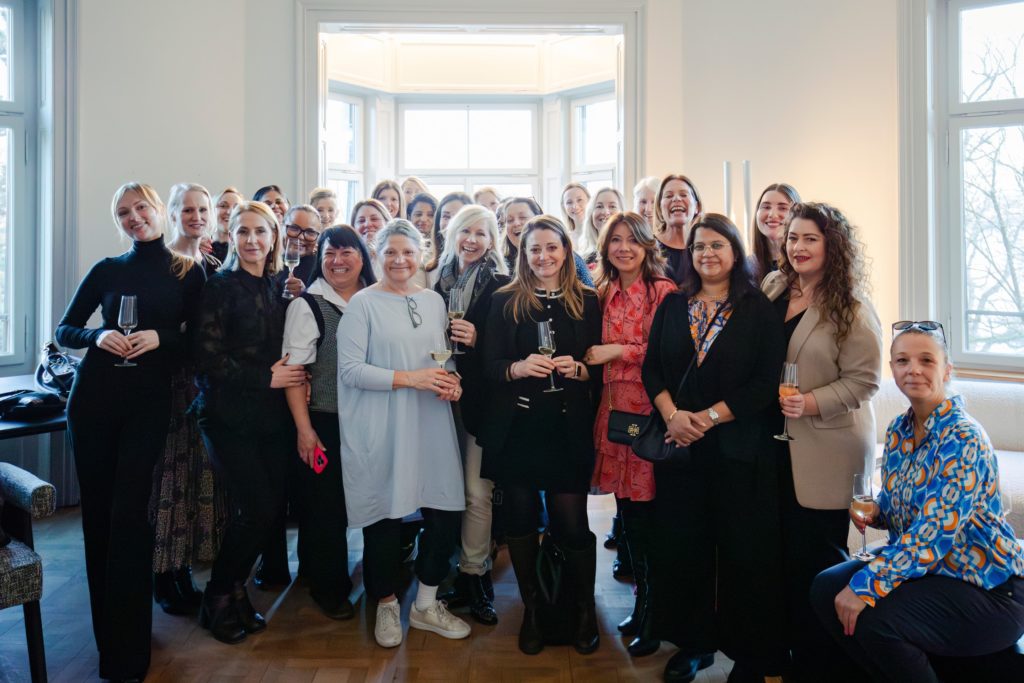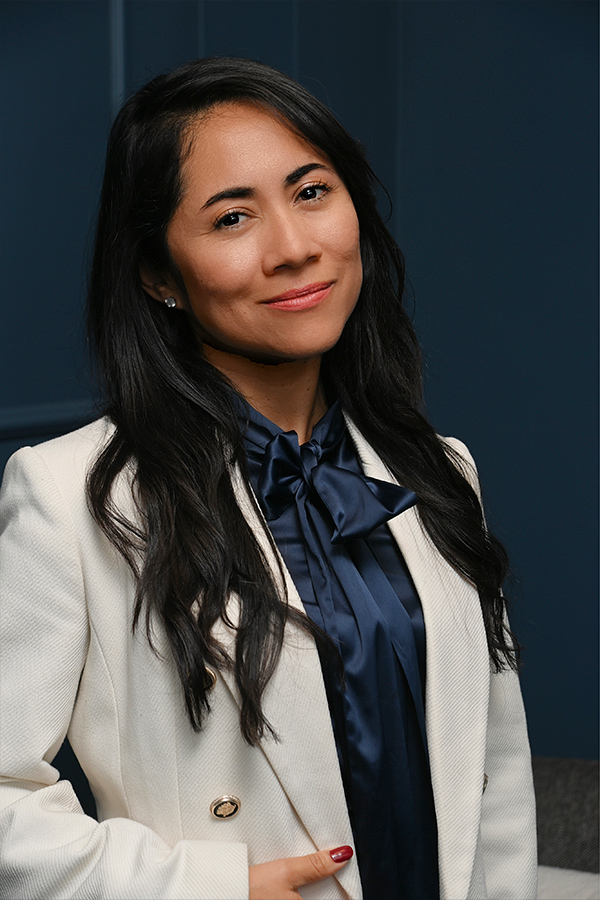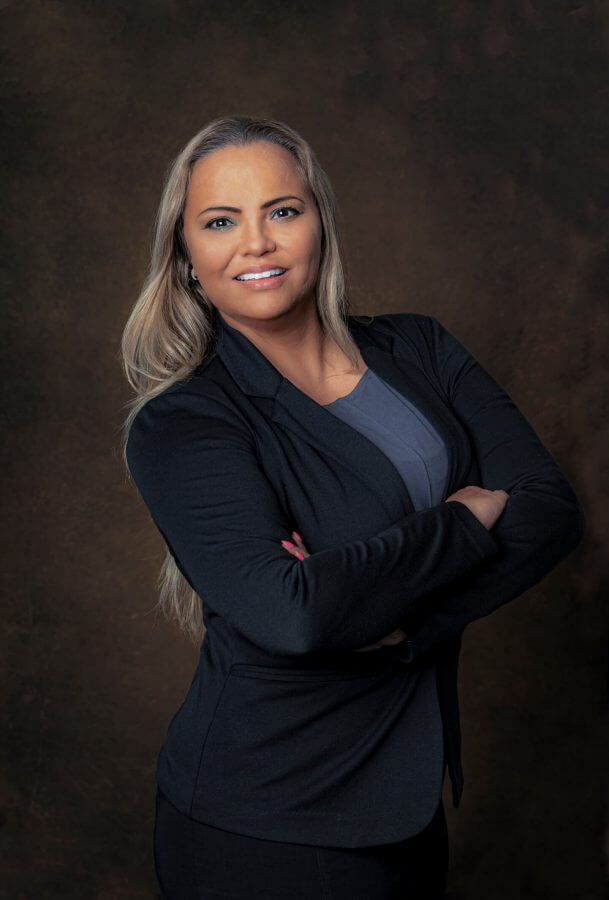A Merit-Based Approach to Success
Earlier this month, UMA Wealth (Switzerland) AG achieved a significant milestone by winning the WealthBriefing Swiss Awards 2025 for Leading Wealth Management Industry Participant in the ‘Boutique Firm’ category. Adding to this achievement, Geralda Kral, Managing Director of UMA Swiss AG and UMA Wealth (Switzerland) AG, was named WealthBriefing Swiss EAM 2025’s Female Executive of the Year.
Showcasing ‘best of breed’ in the Swiss region, the awards have been designed to recognise outstanding organisations grouped by specialism and geography, which the prestigious panel of independent judges deemed to have ‘demonstrated innovation and excellence during the last year’.
Each of these categories is highly contested and is subject to a rigorous process before the ultimate winner is selected by the judges. It is this process that makes WealthBriefing awards so prized amongst winners.
Participants around the world recognise that winning these awards is particularly important in these challenging times as it reassures clients of the solidity and sustainability of the winner’s business and operating model.
While these honours brought a deep sense of pride, they also sparked reflection: How did we get here, and where are we headed?
At UMA Wealth, we frequently convene executive discussions on industry trends, client needs, and the evolving wealth management landscape. This month’s conversation centred on female leadership in finance—exploring the challenges of executive roles, the influence of sponsorship, and the balance between diversity initiatives and true meritocracy. We also examined the unique advantages and challenges of working in boutique firms, whether female executives can better serve female clients, and what it takes to foster the next generation of leaders.
Geralda Kral stated, “When I look at my career, I see years of dedication, resilience, and hard work. I don’t see handouts or preferential treatment. I’ve earned my place in leadership—not because I’m a woman but because I’m the best at what I do. And I’ve done it while raising a family and overcoming industry biases.”
This conversation is not about dismissing diversity efforts—it’s about setting the record straight on what real merit-based success looks like. Women in leadership should be recognised for their talent and achievements. Breaking barriers is about performance, perseverance, and personal excellence.
Gender Dynamics
Michelle Addison (Compliance Manager at ICON Asset Management), Agne Anuse (Team leader at UMA Wealth (Switzerland) AG, and Marta Sola (Managing Director of UMA Wealth (UK) Limited) pointed out that women often face an inherent challenge: the expectation of being nurturing. This can lead to additional responsibilities at work—whether in administrative tasks or emotional labour—that men are less frequently assigned. While this nurturing instinct helps women excel in relationship management and client service, it also contributes to burnout and workplace inequality.
This prompted a difficult but necessary self-reflection: Are women unintentionally reinforcing this dynamic by taking on more than they should? Do female executives overcompensate to prove their value? More importantly, how can they strike a balance without sacrificing professional ambitions or personal well-being?
Leadership Styles and the Art of Delegation
Women in leadership often take on more operational responsibilities, while men tend to gravitate toward sales-driven, high-visibility roles. Marta noted that this distinction is not accidental but shaped by cultural expectations. One of the biggest challenges female leaders face is delegation. While male executives readily distribute tasks, female leaders often hesitate, striving for perfection. This tendency to oversee every detail, while beneficial for leadership quality, can also become an additional burden.
Geralda reflected on her own experiences, acknowledging that early in her career, she assumed setbacks were purely performance-related. Over time, she recognised that gender bias played a role in shaping how her abilities were perceived. In addition, women often face external pressures—judgment for missing a child’s birthday, societal expectations of being both a ‘good mother or a good spouse’ and a top executive. The balancing act is relentless.
Embarking on this conversation reminded Geralda of a book she bought two decades ago—one that has remained as a relic in her office ever since: Nice Girls Don’t Get the Corner Office by Lois P. Frankel. Back then (2004 edition), the book focused on identifying and overcoming behaviours that hinder women’s professional advancement.
Frankel highlights over 130 unconscious mistakes women often make in the workplace, offering practical advice to transform these habits and achieve career success. She argues that many women unknowingly adopt self-sabotaging behaviours—often ingrained since childhood—such as being overly accommodating, avoiding self-promotion, or seeking approval instead of asserting authority. Success in corporate environments, she emphasizes, requires confidence, strategic thinking, and self-advocacy—qualities that men are often encouraged to develop but that women are frequently discouraged from exhibiting.
Geralda noted that, although she found the book enlightening 20 years ago, she keeps it in her office as a remembrance of how times have evolved for the better. Nowadays, women need to be less conscious about how to behave, what to say, or what to wear to avoid not being taken seriously. As she states, ‘it is possible to be in politics or to be a CEO of a company and to wear pink or bake cookies for the office and still be respected because of one’s achievements`. In the past, women were often advised to adopt traditionally “masculine” traits to be taken seriously—wear dark suits, avoid emotional expression, and steer clear of anything perceived as “too feminine.” However, modern leadership is about results, not appearances or hobbies. Nowadays, authenticity is power, and presence and performance matter more than image. The idea that a woman could boycott her career due to certain typical female habits sounds outdated in 2025. Women like Mary Barra (GM CEO) and Sara Blakely (Spanx founder) embrace feminine elements while leading billion-dollar companies.
Geralda also noted that the book has been updated continuously, with its latest update last year to fit modern times. It is a very interesting read as it picks on matters, that are common for women.
The new leadership standard for women should always be performance over perception. Today’s leadership isn’t about playing by old rules but rewriting them. A woman can embrace femininity while leading with authority, proving that strength isn’t about wearing navy suits but it’s about delivering results. That was not the case 20 years ago, however.
The Future of Women in Finance: Beyond Diversity Initiatives
Despite progress, systemic barriers continue to limit women’s career advancement. Societal expectations, unconscious biases, and limited access to sponsorship create hurdles that many female professionals must navigate. One of the most significant challenges is the persistent scrutiny working mothers face. While men in leadership are rarely questioned about balancing work and family, women are repeatedly asked whether they can truly “do it all.” The irony is that many already do—the real issue lies in a system that has yet to adapt to the realities of modern professional and family life.
Marta highlighted another challenge: the increasing demands placed on parents, particularly in managing their children’s education. The administrative burden—weekly school communications, frequent events, and heightened expectations—can feel like a second full-time job. While men should share this responsibility equally, the reality is that women often bear a disproportionate share. This imbalance stems from various factors, including traditional gender roles and, at times, a lack of support structures that enable men to fully step into these responsibilities and support their executive partner or spouse effectively.
The Influence of Cultural Diversity
At UMA Wealth, our diverse cultural backgrounds significantly enhance our ability to serve clients worldwide, particularly in Latin America and Eastern Europe. Understanding the nuances of different cultures is crucial, especially when it comes to the evolving roles of women in the workforce and families. In many Latin American and Eastern European countries, the interpretation of women’s roles can vary widely, influenced by historical, social, and economic factors.
This cultural diversity allows us to approach client relationships with a deeper understanding of their unique perspectives and needs. By recognising and respecting these differences, we can tailor our services to align with the values and expectations of our clients, fostering stronger connections and more effective communication.
The Double Standard in Leadership and the Boutique Firm Advantage
Women in leadership today often face a frustrating double standard. If they succeed, some attribute it to diversity quotas rather than merit. If they struggle, it reinforces outdated stereotypes. This led to a broader discussion on how leadership opportunities differ between boutique firms and larger corporations.
Boutique firms, such as UMA Wealth, emphasize meritocracy, creating an environment where women advance based on performance rather than statistics. Some female clients, in turn, often prefer working with female advisors, reinforcing the need for diverse leadership. While large corporations may have structured DEI (Diversity, Equity, and Inclusion) policies, boutique firms offer agility, adaptability, and greater individual ownership of career progression.
Moving Toward Real Meritocracy
The financial sector must evolve beyond surface-level diversity initiatives and embrace genuine inclusivity—where skills, performance, and leadership ability take precedence over identity markers. The key steps forward include:
- Recognising women for their expertise and contributions. The most effective form of sponsorship actively promotes women based on their skills, leadership abilities, and business impact—not as a means to meet diversity targets. True sponsorship involves senior leaders, both male and female, using their influence to advocate for high-performing women, ensuring they are considered for key projects, leadership roles, and industry recognition. This type of sponsorship must be intentional and merit-based, providing women with visibility and opportunities they may otherwise be overlooked due to unconscious biases.
- Encouraging sponsorship from male and female leaders to actively support women’s career growth. Sponsorship is most effective when it is championed by leaders of all genders, ensuring that women receive the same advocacy and career-defining opportunities as their male counterparts. A truly merit-based system requires leaders to recognise and amplify talent, rather than relying on outdated networks that often favour men, because they seem like a more reliable bet (habit, not bound to family commitments as much as women, no extended pregnancy leave etc).
- Shifting the narrative from “women needing extra help” to acknowledging their proven capabilities. Women in leadership are not looking for handouts; they seek equal access to opportunities that allow them to demonstrate their expertise. The focus should shift from viewing women as a group that requires additional support to recognising their established track record of success. This means dismantling assumptions that women rise to leadership through diversity initiatives alone and instead celebrate their resilience, innovation, and business acumen. Organisations must actively reinforce the message that female executives earn their positions through performance, ensuring that merit remains the defining factor in leadership progression.
Women in any leadership role, especially in finance, do not need special treatment—they need equal opportunities and they need a support system that allows them to also be successful in their roles as mothers and other forms of care takers. The next generation of female leaders should not have to fight the same battles inside and outside of their work. Instead, they should rise through the ranks based on talent, hard work, and strategic vision.
Breaking barriers isn’t about waiting for opportunities—it’s about having the chance to demonstrate our capabilities, earn recognition, and contribute to shaping a more inclusive industry.
As we progress, our focus remains on ensuring that success in finance is driven by merit, expertise, and performance rather than gender.
March 8th, 2025
By Geralda Kral
Managing Partner, UMA Swiss AG
A special thanks to Rachel Fokes, Director of Global Events and Awards of ClearView Financial Media Ltd who suggested to organize an event for Female Executives in Zurich to celebrate International Women`s Day and provide the possibility for like-minded women to network.








































